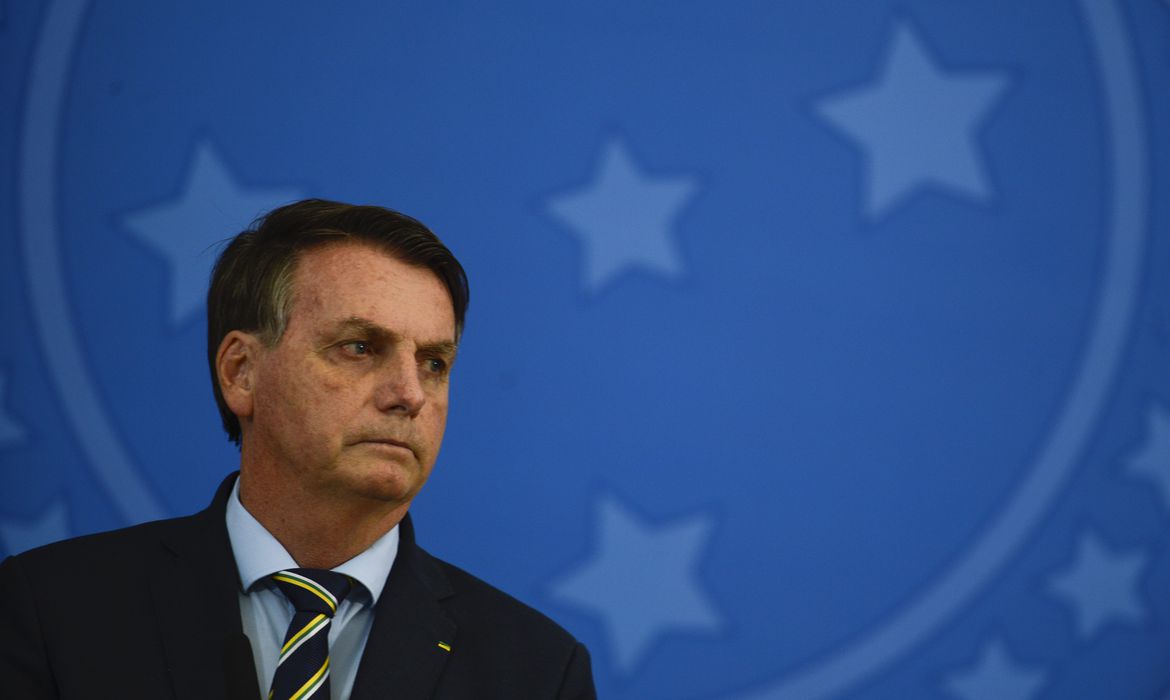RIO DE JANEIRO, BRAZIL – A new complaint was brought on Sunday, July 26th, to the International Criminal Court of The Hague in an attempt to hold President Jair Bolsonaro responsible for ignoring technical guidelines in actions related to the coronavirus pandemic in Brazil.

This time, a coalition of over 60 trade unions and social movements – most of them health professionals, under the leadership of the UniSaúde Trade Union Network – is calling for the President’s conviction for genocide.
The denunciation argues that the President committed a crime against humanity, by encouraging actions that increase the risk of virus spread and by refusing to implement protection policies for minorities. A 64-page document, which claims to represent over a million health professionals, points out “serious and deadly flaws” in Brazil’s response to the health crisis led by Bolsonaro. The country counts to date over 86,000 deaths and almost 2.4 million confirmed Covid-19 cases.
According to the document, the President never heeded the technical advice of his own Ministry of Health to halt the contagion in Brazil. Since the onset of the crisis, he caused crowds on several occasions and appeared without a mask, as well as making statements that downplayed the gravity of Covid-19, which he termed “a minor flu”.
“This attitude of contempt, neglect, negationism, resulted in disastrous consequences, with the resulting growth in the spread of the virus, total strangulation of healthcare services, which found itself lacking the minimum conditions to assist the populations, resulting in deaths without further controls,” the document states.
The denunciation also mentions the President’s persistence in advocating the use of chloroquine in the treatment of Covid-19 despite the absence of scientific evidence of its effectiveness, in addition to the veto of laws passed by Congress to contain the epidemic in the country (such as the mandatory use of masks in closed places, trade, and religious temples) and to protect populations in situations of greater vulnerability, such as indigenous peoples and quilombolas (Afro-Brazilian residents of historical quilombo settlements).
In early July, Bolsonaro vetoed the federal government’s obligation to guarantee drinking water to this population during the pandemic. “The vetoes reveal a policy of minority exclusion, placing these peoples on the margins of any public policy,” it charges.
President Jair Bolsonaro has been denounced for the risk of genocide related to indigenous peoples in the past. At least three lawsuits in The Hague call for an investigation into his actions in response to the coronavirus pandemic. Argentine attorney Luis Moreno Ocampo, the first chief prosecutor of the International Criminal Court, said that it would be necessary to demonstrate that there was a plan to use the coronavirus as a tool to exterminate all or part of the population, before the President of Brazil could be investigated and tried by the Court.
Lawyer Deisy Ventura, an expert on the relationship between pandemics and international law, said that she sees all the necessary evidence for typifying crimes against humanity in the Brazilian government’s response to Covid-19: intent, plan and systematic attack. In any event, the international court may take months to analyze the complaints and decide whether or not to launch a formal investigation into Bolsonaro.
“There were three complaints in court so far. We understand that they are important and we are not competing. We are now trying to contribute with technical evidence. We represent unions from different sectors, most of them healthcare professionals, and we have brought a body of information that shows that there is a crime, either by action or by omission,” explains Márcio Monzane, regional secretary of UNI Americas, one of the organizations behind the complaint.
He comments that those on the front line complain about the lack of protective equipment and testing, and that some 500 of these professionals have already died of Covid-19 in Brazil.
The document attempts to retrace the background of the pandemic in the country. It mentions the actions of the National Congress in the sense of debureaucratizing the rules for public spending, making way for the government to adopt effective emergency actions to fight Covid-19.
It also addresses the whole political crisis within the Ministry of Health during the pandemic, with the replacement of two Ministers of Health for differences with the President – who pursued his misguided stance of criticizing social isolation and advocating the use of chloroquine. It also points out that the country is facing the worst health crisis of the century without a health cabinet chief.
Furthermore, the complaint states that strategic positions are now held by military officers with no experience in health. “With an interim Minister of Health, the control of the fight against the spread of the pandemic is completely abandoned, requiring governors and mayors to take measures that should inevitably be commanded by the Executive,” it says.
The organizations further mention Federal Supreme Court Justice Gilmar Mendes’ statement, who directly associated “genocide” with the pandemic in Brazil this July. “This is terrible for the image of the Armed Forces. It must be said very clearly: the Army is associating itself with this genocide, it is unreasonable. We must put an end to it”, said the magistrate.
According to the health professionals’ unions signing the document, President Bolsonaro’s actions during the coronavirus pandemic “expose the lives of an entire population to high health and death risks.” They still consider that there is “willful misconduct” and “intent in the President’s stance, when adopting measures that harm human rights and unprotect the population, exposing them to large-scale risk, particularly vulnerable ethnic groups.”
Source: El País

